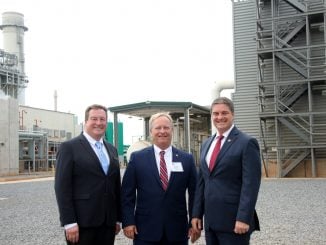If a finger must be pointed, at least point it in the right direction: this is a Duke Energy issue, not a solar issue. The sources of energy-related pollution are fossil fuel plants, in which Duke is heavily invested. If the utility would invest more in clean energy sources, which also happen to be more affordable for customers, the company’s emissions challenges resolve. But if the utility divests of fossil fuels, an earnings challenge emerges. As is often the case, it’s a matter of Duke’s priority: shareholders versus customers. While attempting to discredit clean energy, the August 14 article underscores several key points that actually support the expansion of clean energy in North Carolina.
Transitioning to a clean energy economy isn’t a pipe dream. There’s data to support the enormous additional solar and wind potential left in North Carolina. For example, a recent report filed with the North Carolina Utilities Commission indicates that Duke plans to keep uneconomic coal plants running while unnecessarily emitting harmful air pollution. The article also helps make the case for updating our power system to accommodate more clean energy. If starting and stopping fossil fuel plants is supposedly increasing pollution, then the utilities need to focus on clean solutions such as deploying more energy storage, which as demonstrated in the study, can cost-effectively mitigate the ramping concerns cited in this article without increasing air pollution. Instead of utilizing the status quo, why isn’t Duke using accessible, affordable, and clean technology solutions to address their reported concerns with ramping?
Duke’s own spokesperson acknowledges in the article that adding more solar would help mitigate their issue. If increasing North Carolina’s solar capacity would help, let’s get to work. Wind energy plays a role, too. In fact, Duke recently touted the benefits of wind energy in its own publication, illumination, highlighting how much it helps stabilize farmer income in rural areas. In the Oklahoma communities referenced in the article, Duke notes that the county tax payments from wind made it possible for the local school district to build a new early childhood center and supply other much-needed resources.
Clean energy that benefits farmers and rural communities? Yes, please. How about Duke focus on our own service area and install more wind projects right here at home so that North Carolina customers are the beneficiaries?
With clean energy being the most affordable energy solution available, the time for utility reform in North Carolina has arrived. The stage is set to finally change the old, outdated utility monopoly model and open energy markets to competition. It’s time to expand clean energy choices for customers and encourage the kind of market competition that will drive down power bills, encourage investments and economic development opportunities, create meaningful tax revenue for counties that need it most, and decrease the air pollution that the author and the North State Journal are suddenly so concerned about.
Mark Fleming, president and CEO, Conservatives for Clean Energy



